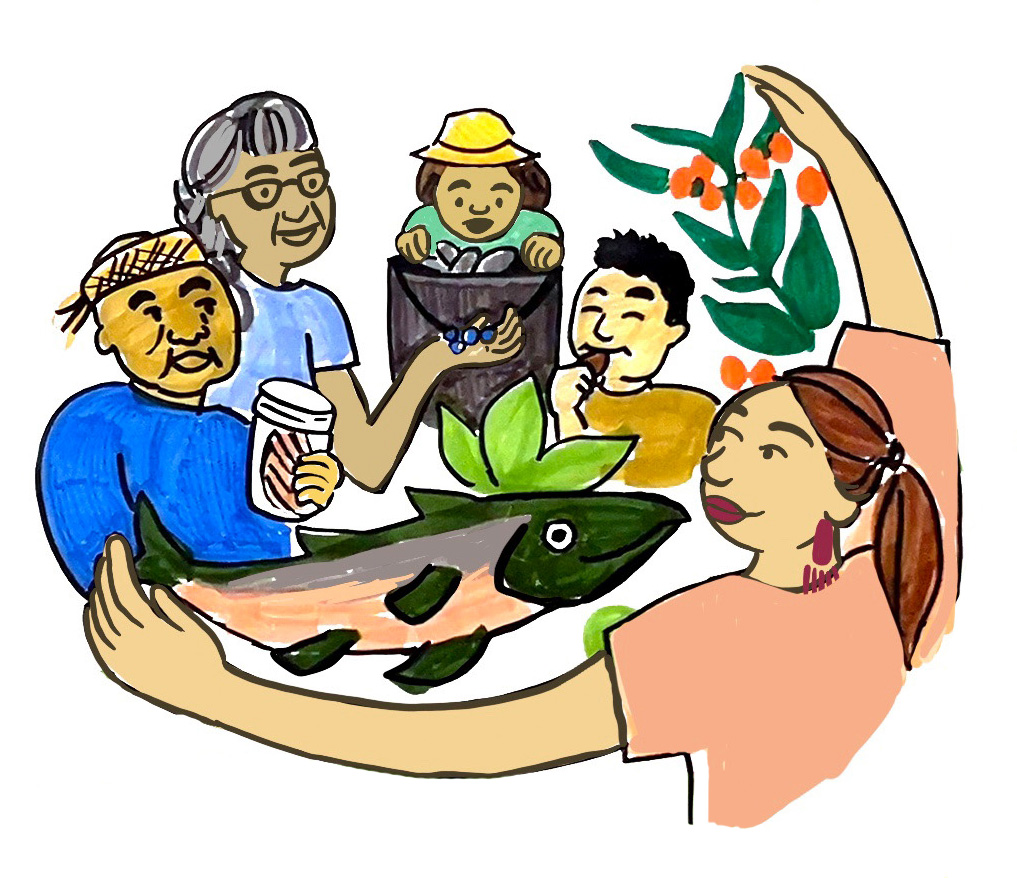
This approach can complement the work of those who are bringing traditional Indigenous foodways into schools. F2CC has funded many projects where, from remote communities to urban centres, educators including Elders and Knowledge Keepers are teaching about food and traditional food systems and are incorporating traditional foods, practices and traditions throughout the school day. See Gudangaay Tlaats’gaa Naay Secondary School, Masset BC’s story and learn about other schools that are integrating Indigenous foodways.
We are proud of what we have enabled so far; however, we know that we need to do much more to better honour the Indigenous peoples, histories and lands on which we all live today.
F2CC has been working within our own team to envision how our mandate, operations and institution can better include, reflect, honour and amplify Indigenous voices, perspectives, values, and ways of knowing. We are doing this with the spirit of nourishing relations.
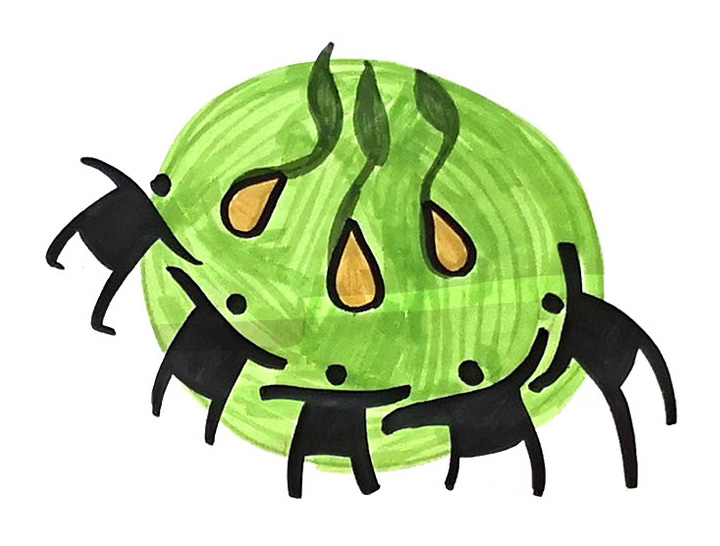
The objectives of these sharing circles were:
Each of the regional sessions began with an introduction and a warm welcome from the facilitators. Participants were invited to introduce themselves and share stories of learning, prosperity challenges and resiliency within their community’s school food initiatives.
The F2CC team sought guidance on how to improve grant accessibility for Indigenous communities; how to expand resources and support systems to honour Indigenous food systems, knowledge and values; and how to foster deeper connections amongst Indigenous school communities.
The sessions closed with a presentation of the graphic recording from the discussions, summarizing the time spent together. We thank Tiaré Lani and Carina Nilsson for their graphical recordings of the event. All of the images featured on this web page come from their recordings of our time together.
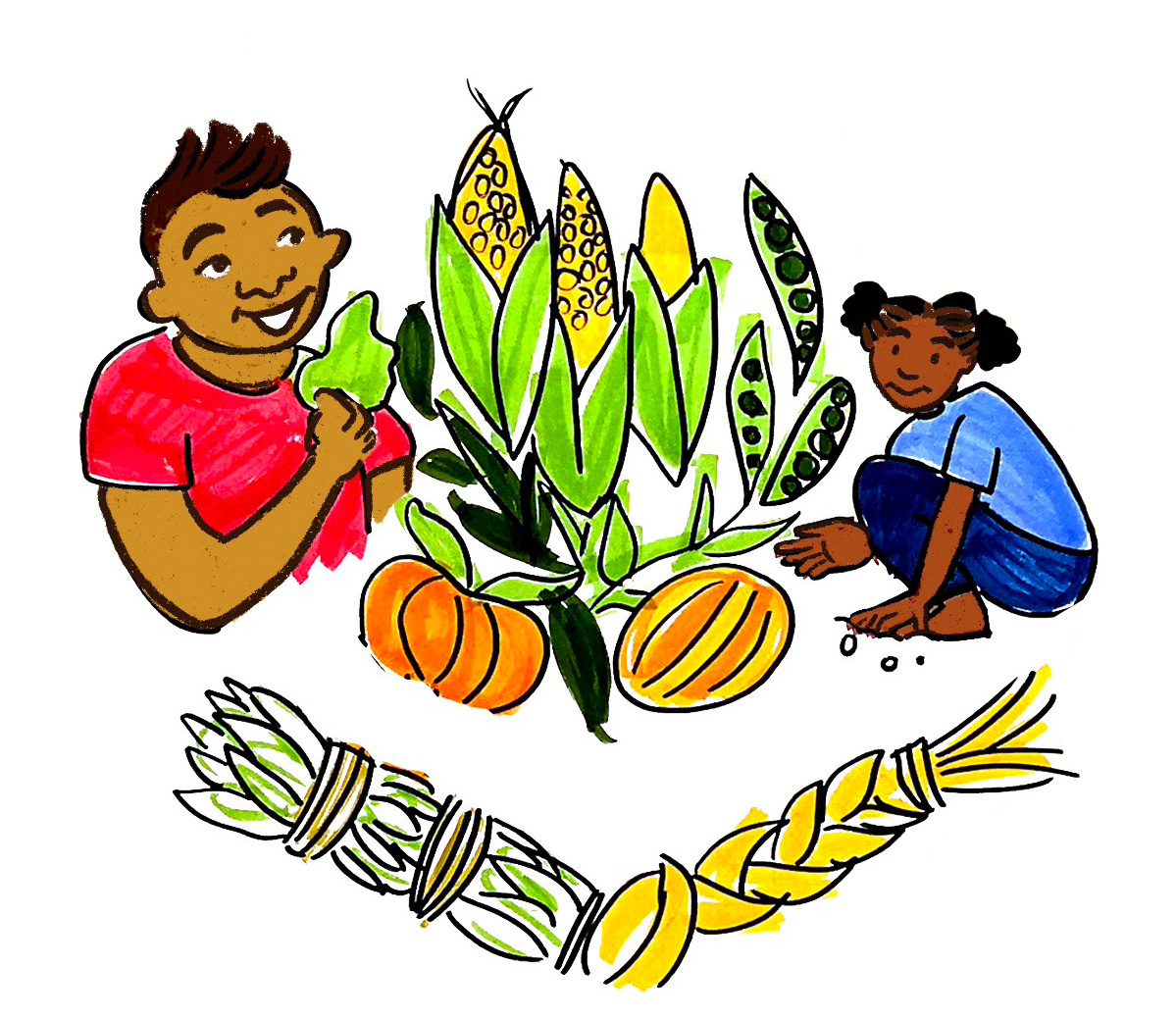
The BC and Saskatchewan engagement session was held on February 9, 2021, and had eight Indigenous and non-Indigenous participants. The cross-regional engagement session on February 25, 2021, had three participants. Both of these sessions were hosted by F2CC’s Claudia Páez and Alderhill’s Jessie Hemphill.
Fourteen youth participated in the March 6, 2021 youth session, along with a few adult youth workers. This session was hosted by Alderhill’s facilitator, Kyle Alec, and F2CC’s co-facilitator, Jyotika Dangwal.
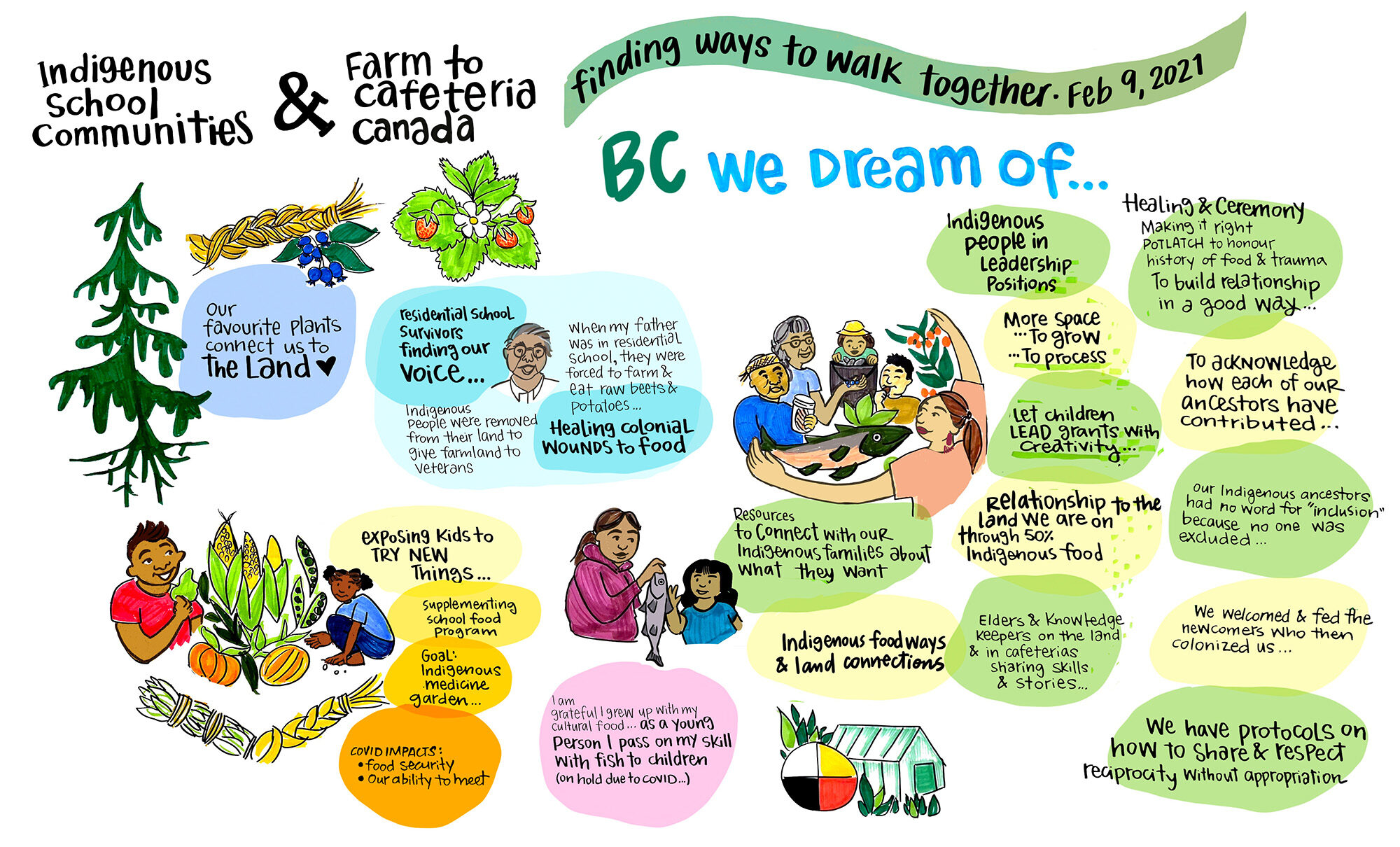
Several participants spoke of land-based learning as being foundational to good, meaningful food education. Some organizations are bringing students onto the land for field trips with a focus on stewardship, harvesting, and learning about traditional plants, animals, and medicines. In one community, students go on field trips to harvest traps. For many students who don’t fit into the traditional academic box, these opportunities boost their identity and confidence.
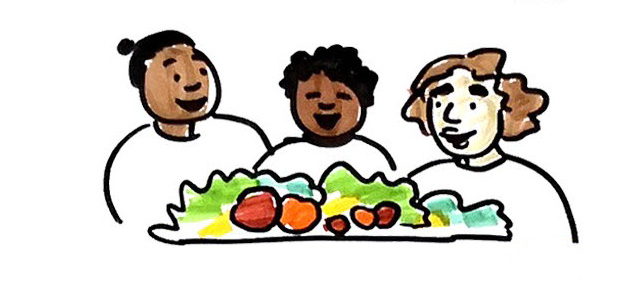
It was mentioned by a participant and reiterated by facilitator Jessie Hemphill that “food brings folks from all walks of life together” and “even if there are divides, food is a great way in which we can bridge those divides.”
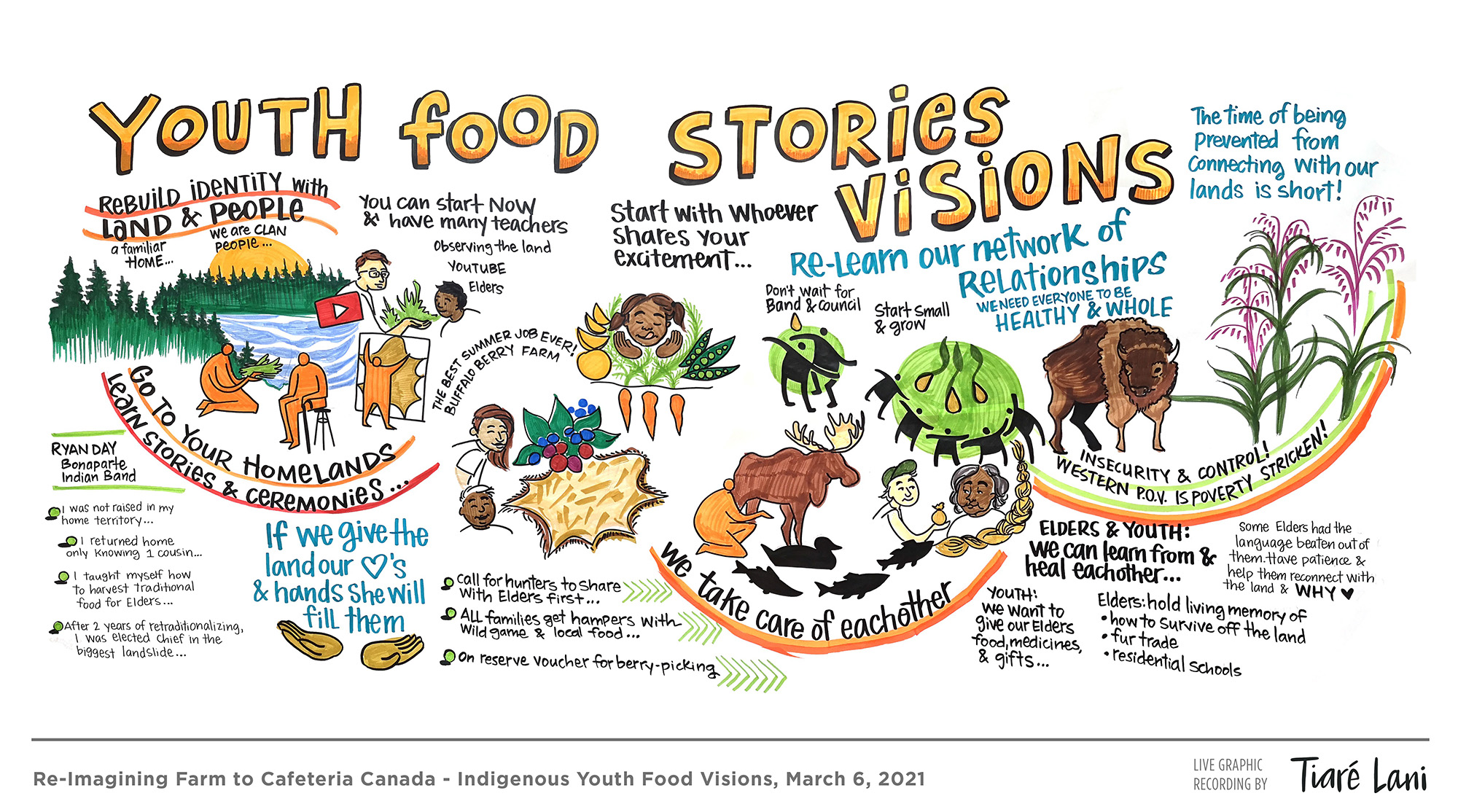
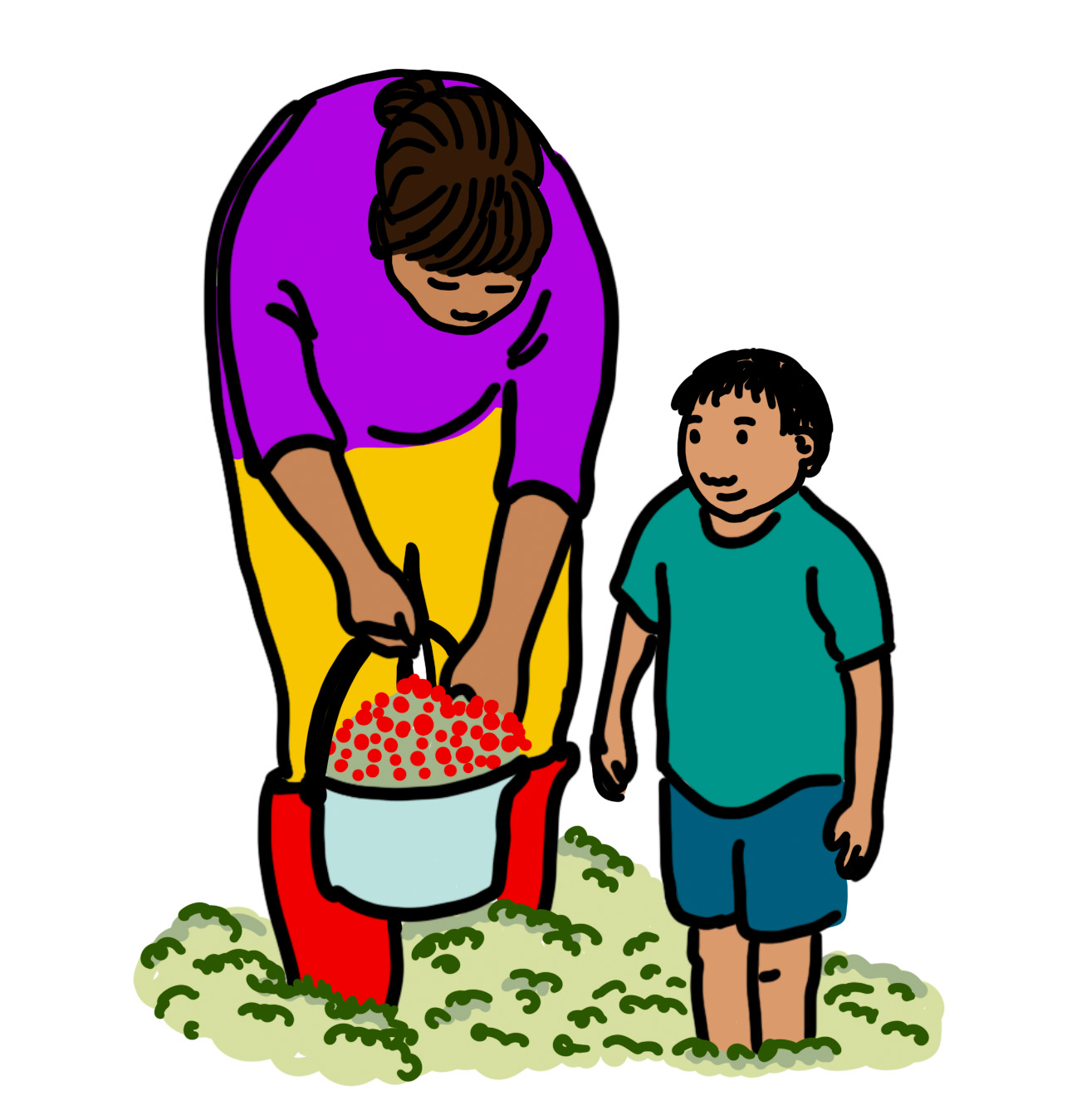
Participants expressed the value of bringing youth and Elders together to share stories and build skills around food provision and food security. Participants deeply wanted to learn the skills needed to connect with the land. Youth workers also wanted to engage youth, as the next generation, to pass on this knowledge. Participants agreed that programs that bring Indigenous communities together through food production and sharing are extremely valuable for Indigenous youth and the greater community.
Intergenerational learning opportunities were celebrated by participants. Participants shared that communities can increasingly know themselves and move forward in a good way by using food and food systems to create relationship-building and educational opportunities between generations.
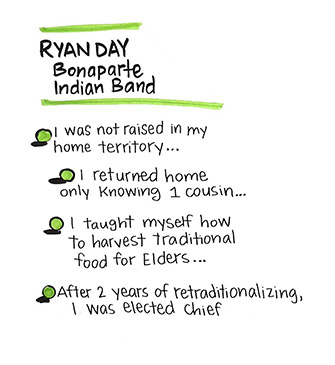 During the youth session Ryan Day, former chief of Bonaparte Indian Band and traditional food practitioner, shared his journey in reclaiming traditional food practices; for himself, for his community, and for the sake of Indigenous food sovereignty.
During the youth session Ryan Day, former chief of Bonaparte Indian Band and traditional food practitioner, shared his journey in reclaiming traditional food practices; for himself, for his community, and for the sake of Indigenous food sovereignty. He emphasized a number of key points:
In order to get to the root of Indigenous liberation, you need to:
Ryan grew up hunting and fishing but learned additional practices from relatives and friends from various Secwepemc communities and attending camps. Ryan explained that by reclaiming the relationship with the land and participating in land-based practices, Indigenous peoples can reclaim their identities and educate others about maintaining a healthy and respectful relationship with the ecosystem.
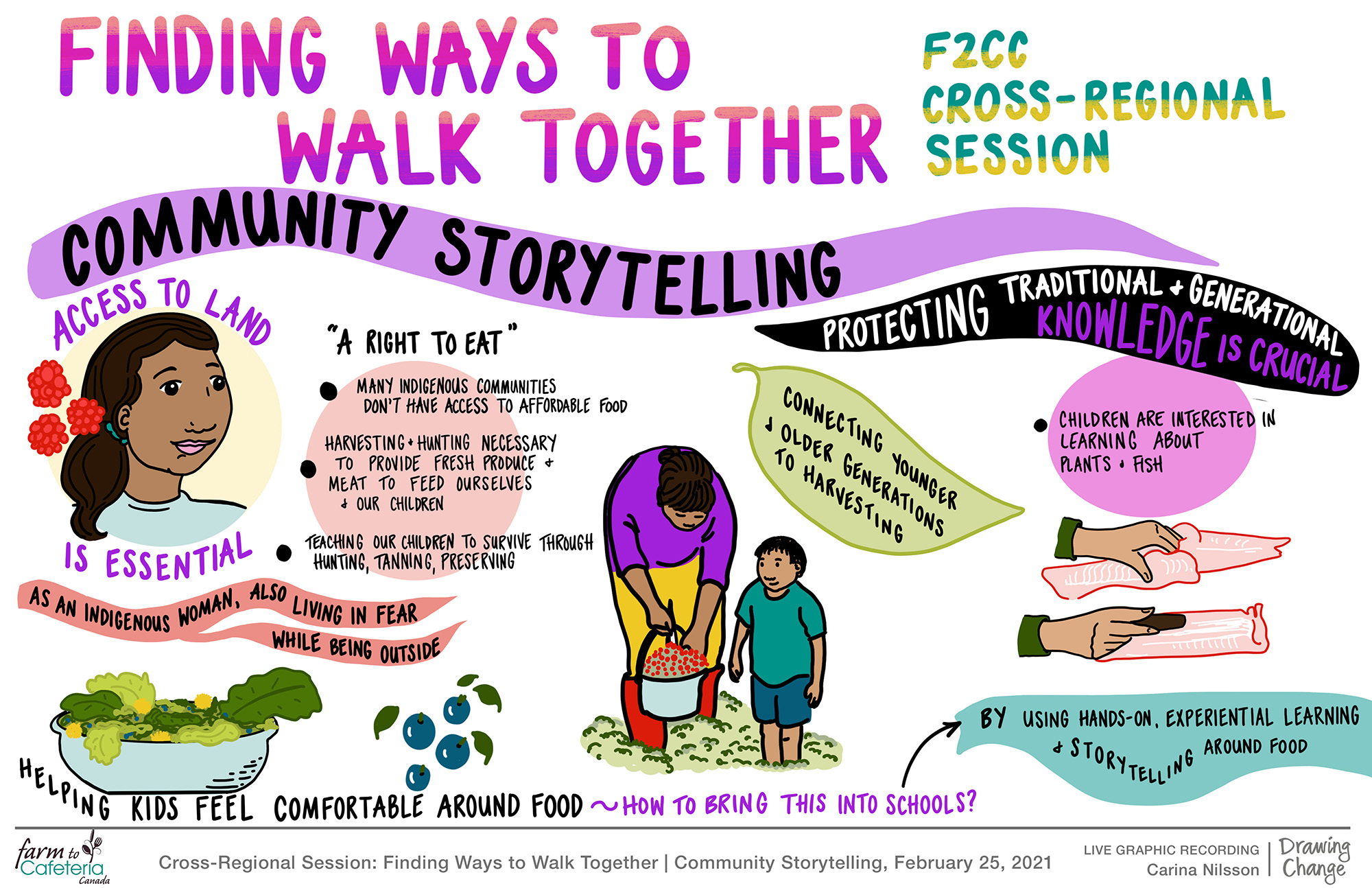
Participants shared how grant-writing, teaching, gardening, and providing hot lunches for students all take a lot of time. Communicating between Nations, schools, or groups about best practices in programming is another area that can be time-consuming.
Some organizations spoke about how they need more support to get past regulatory roadblocks or capacity challenges to make land-based learning a reality.
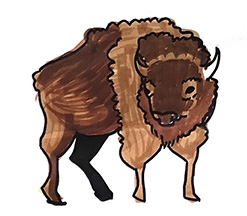
Participants also shared that western ideas influence youth and reduce their desire or willingness to participate in hunting and foraging. For example, there is sometimes a sense that Indigenous foods like “country meat” are “less than” settler foods, creating a roadblock in trying to develop traditional, healthy and sustainable eating practices in schools and communities.
Participants spoke about how it can be difficult for youth to learn traditional practices in a western school setting or when far from home.
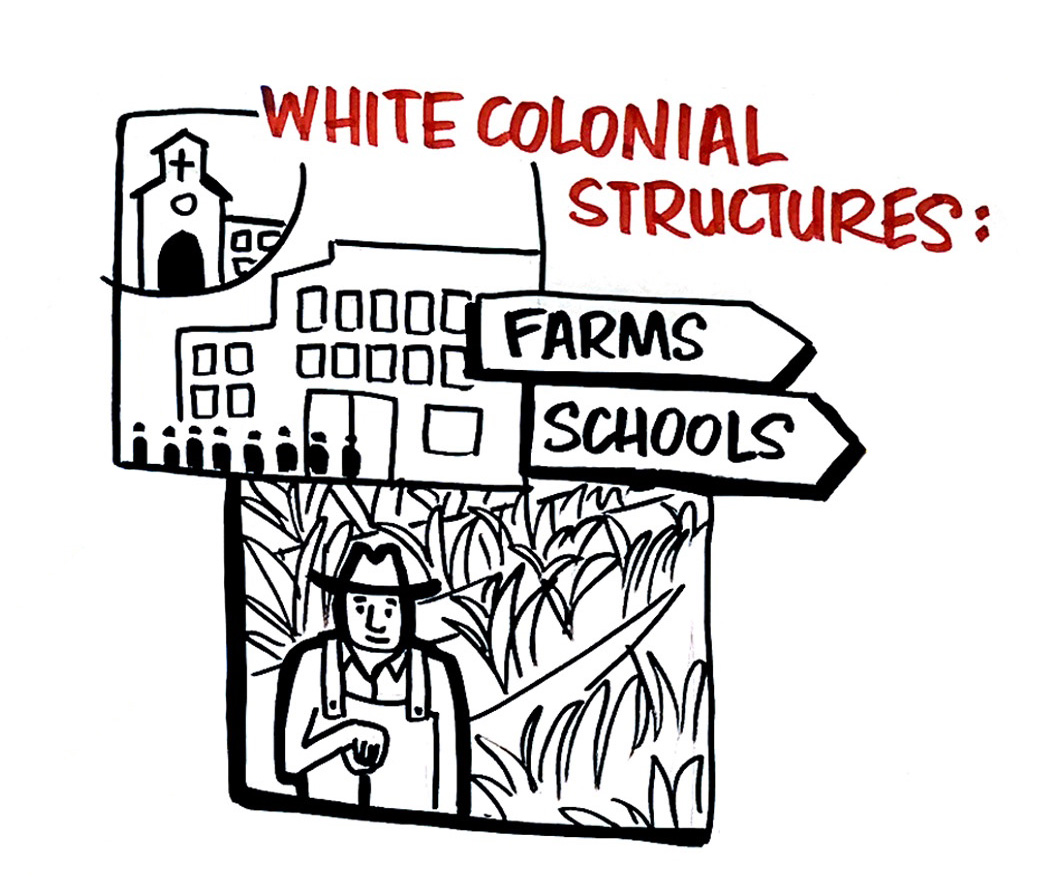
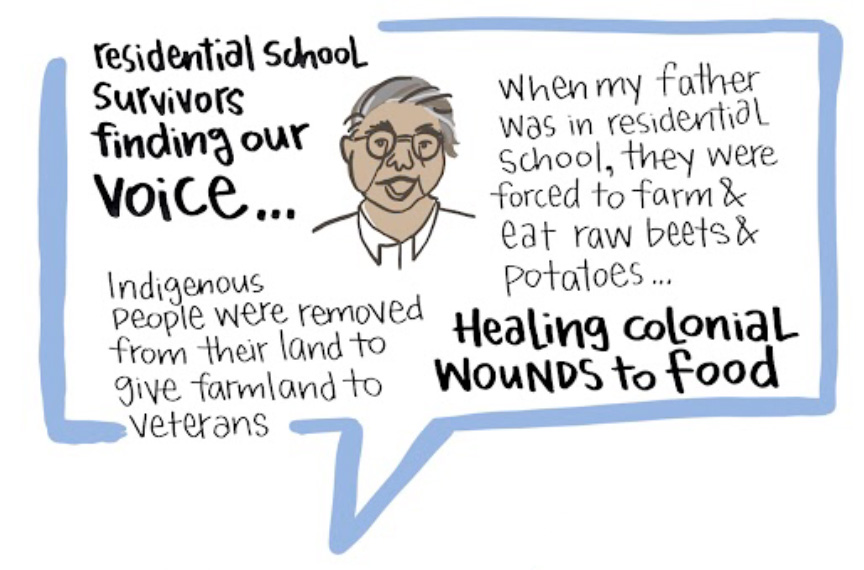
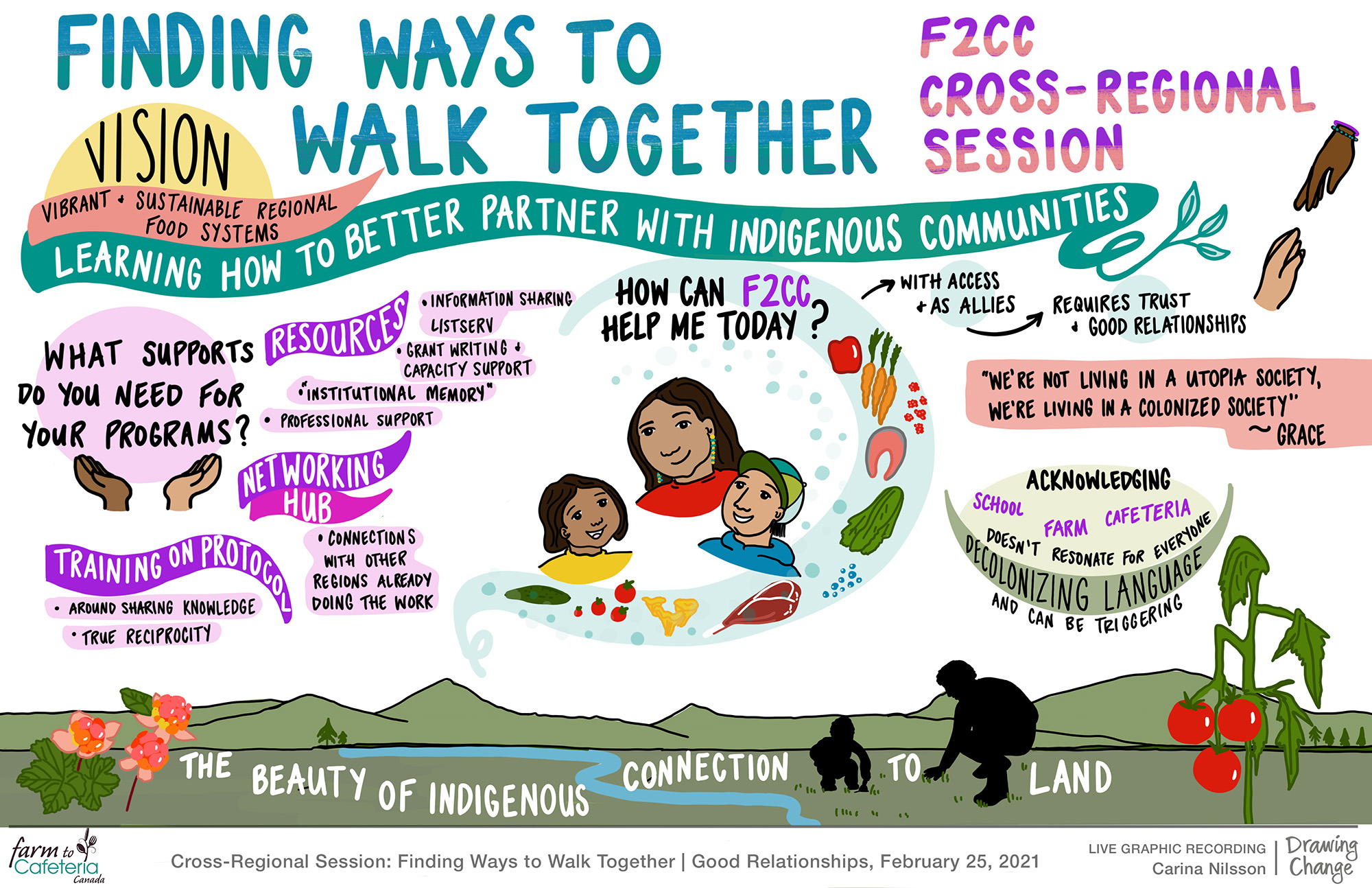
Participants shared many specific recommendations for F2CC to support this work:
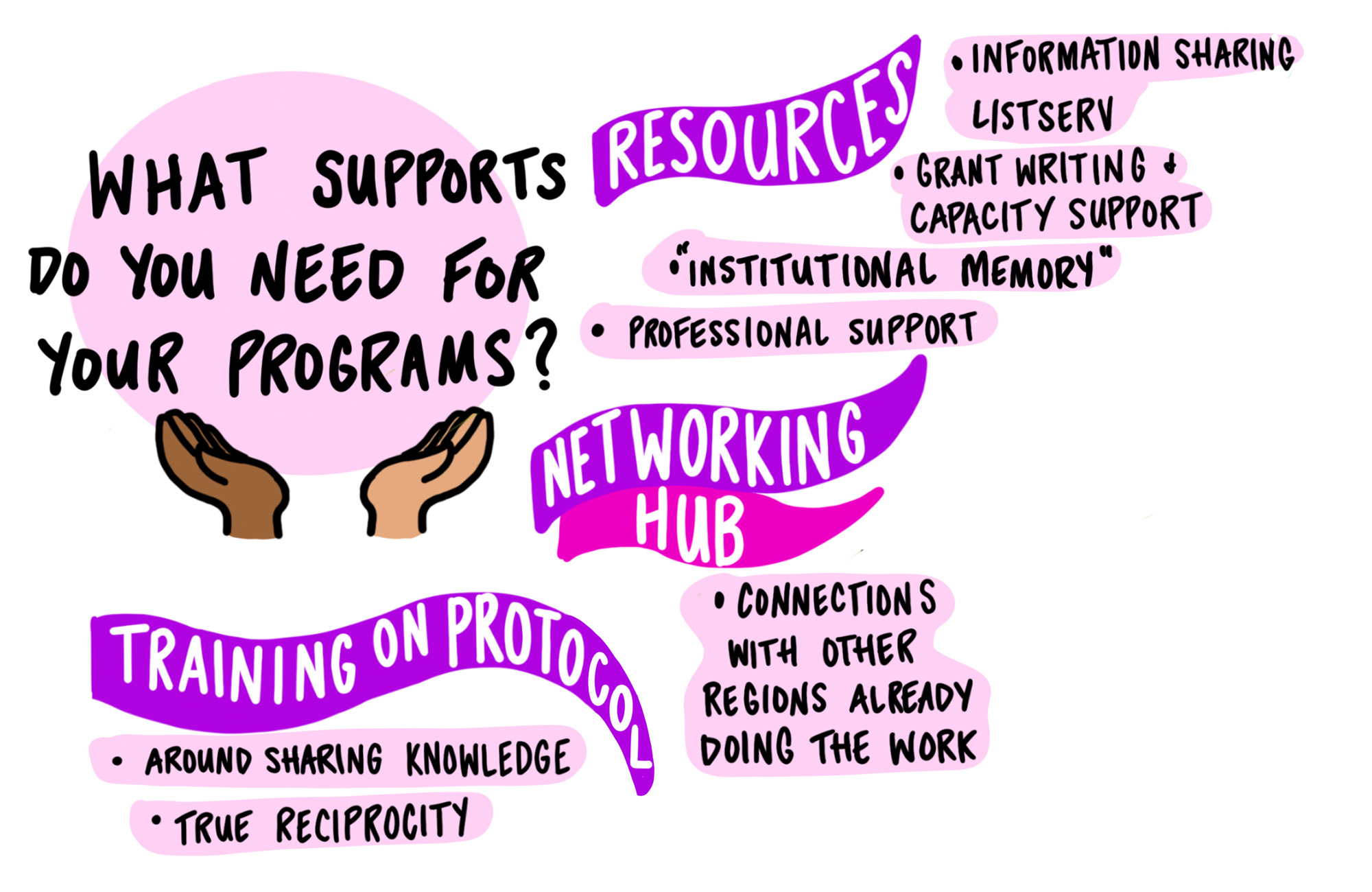
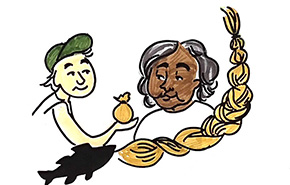
Participants recommended that F2CC hire an Indigenous person onto their team and expressed that for programs to be successful, Indigenous leadership needs to be present.
Everyone appreciated the opportunity to connect, share, and learn about each others’ efforts and experiences.
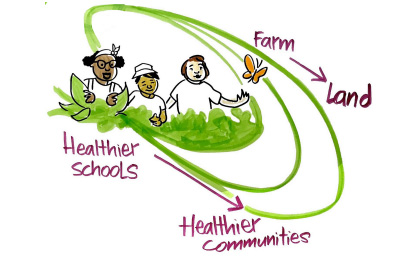
We recognize that community members are the experts; they know what their communities need most. But they don’t always have the tools to get there, and that’s where F2CC can come in.
As we close this first phase of our journey, we would like to acknowledge that F2CC and its Canada Digs In! partners, as settler organizations, have been privileged to be afforded the support and resources to undertake this work.
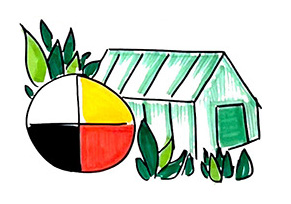
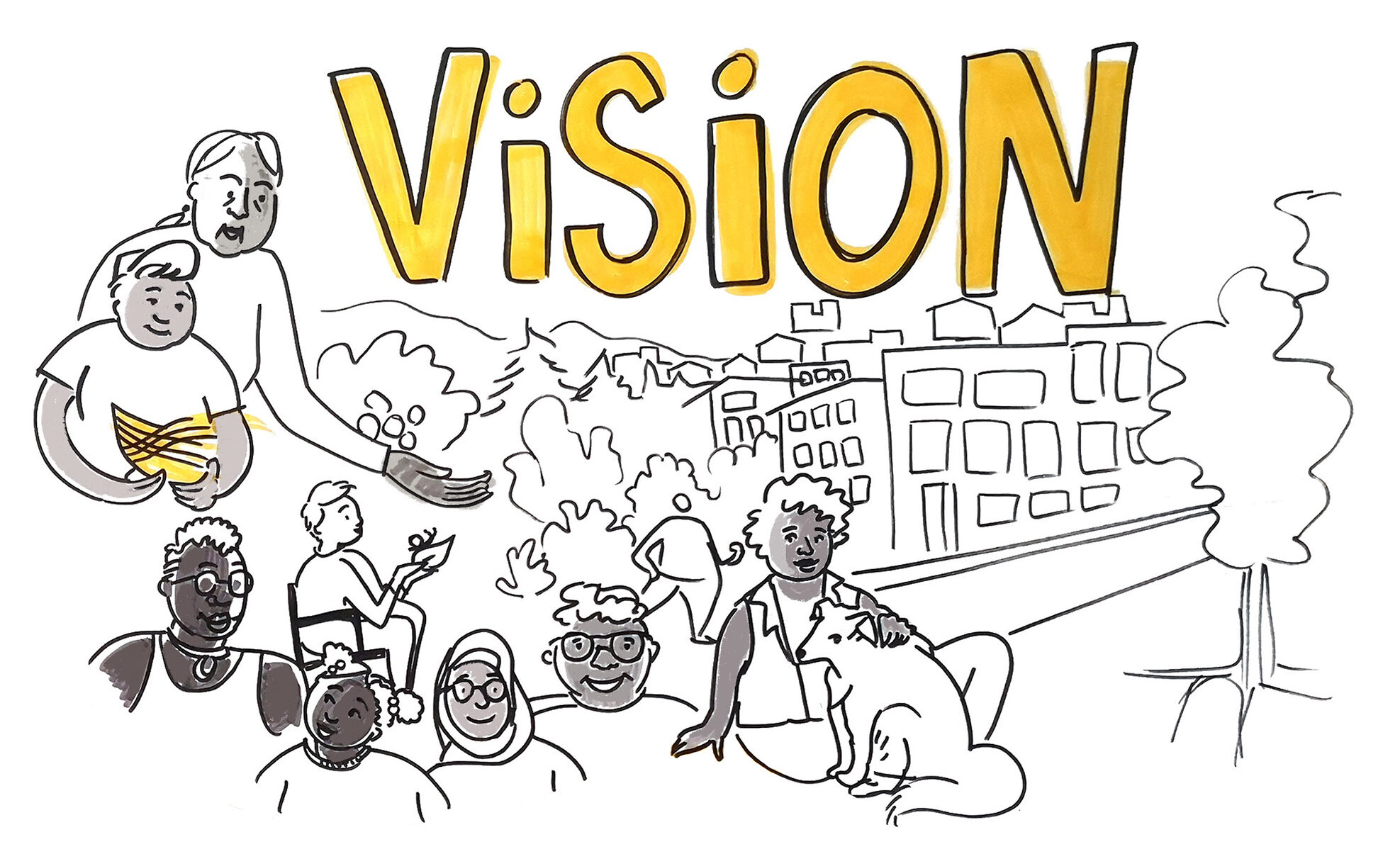
We would like to express our utmost gratitude to the Alderhill team for their collaboration over the past six months, for seeing potential in F2CC and the work that we do, and for setting the tone and helping to provide a strong foundation for our reconciliation journey.
Lastly, we wish to thank the community members including the many Indigenous youth who participated in and informed this process, as well as those who expressed interest but did not have the capacity at the time.
We are committed to continuing to support opportunities for sharing and learning as we continue on this journey together to nourish relations.
Farm to Cafeteria Canada (F2CC) is a pan-Canadian partnership-based organization whose vision is vibrant and sustainable regional food systems that support the health of people, place and planet. Our organization is built upon relationships and, together with our partners, we collaborate to educate, build capacity, strengthen partnerships, and influence policy to bring local, healthy, and sustainable foods to public spaces. F2CC is proud to be a leader in the national farm to school movement, connecting children and youth to their food, their environments and their communities.
F2CC is a settler-led organization. Since 2011 when we were established, F2CC has committed to recognize and support Indigenous food systems in our funded projects and food literacy activities. To date, through the Farm to School: Canada Digs In! initiative, we have given grants of up to $10,000 to 120 schools in Canada, of which 17 schools across the provinces and territories of Alberta, British Columbia, Manitoba, Saskatchewan, Nunavut and Ontario have self-identified as Indigenous or as having strong connections to Indigenous communities.

Farm to Cafeteria Canada’s team and project partners acknowledge that we live, work and play on the ancestral lands of the diverse First Nations, Inuit and Métis people of what we now call Canada. Farm to Cafeteria Canada is committed to reflecting, honouring and amplifying Indigenous voices, perspectives and values in our work. To learn the traditional territories on which our individual team members are located, please visit our team page.
Multilingual WordPress with WPML